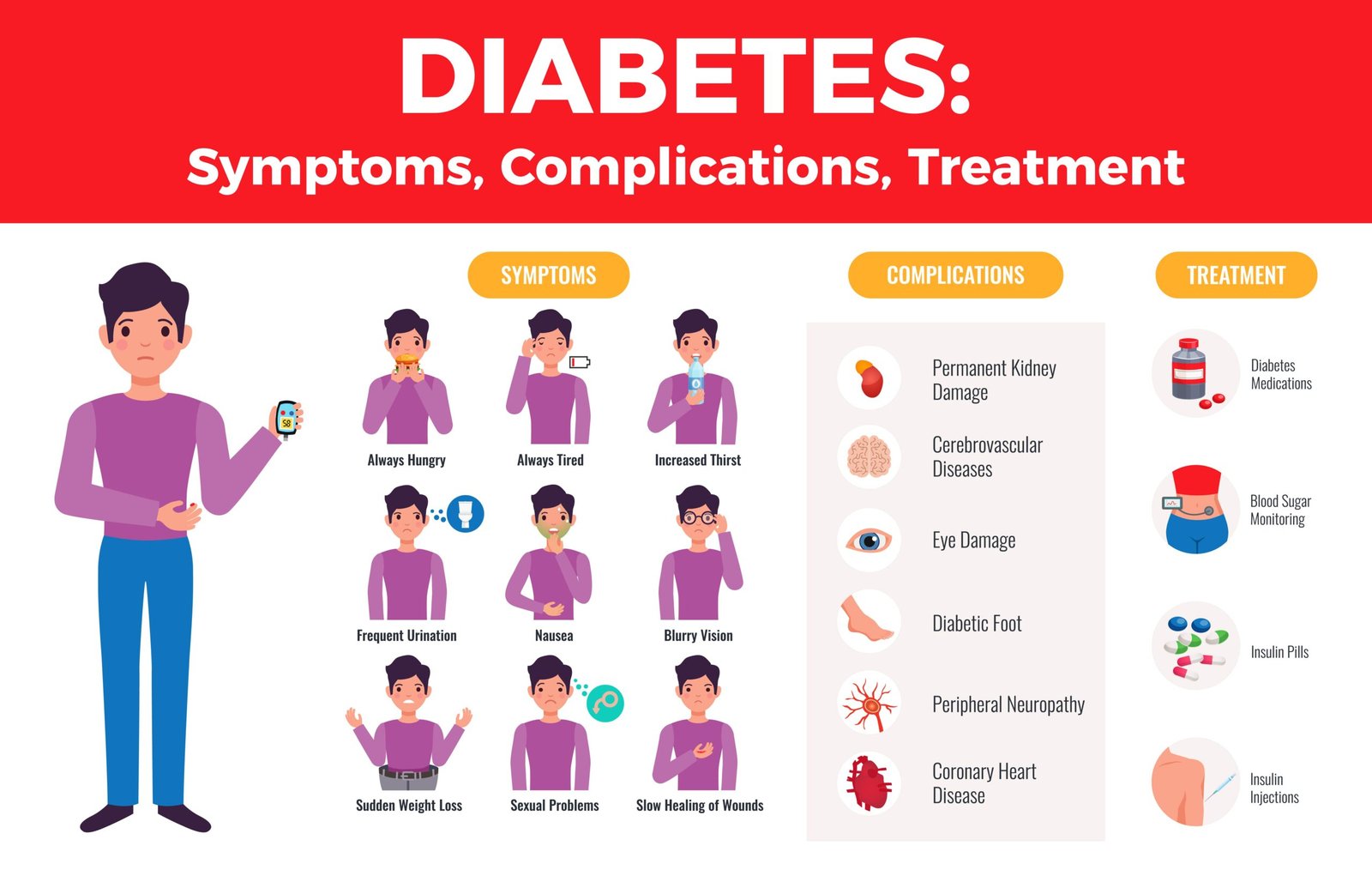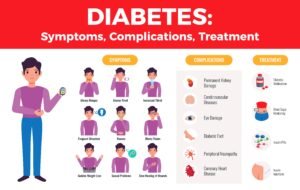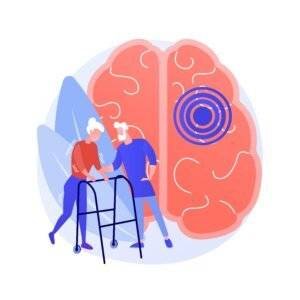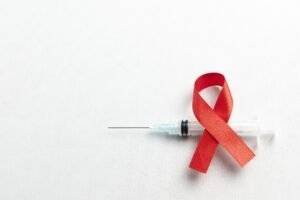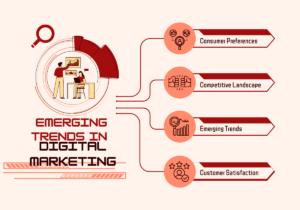High blood sugar level over a longer period is the basic feature that defines diabetes. Two reasons can be pinpointed that lead to diabetes. Either the body cannot produce enough insulin, or the insulin that is produced is not being put to good use. For the ailments of diabetes, ensuring early recognition of its symptoms is key. The characteristics of diabetes in a patient can depend on several factors such as its severity and the specific type.
Most Common Symptoms of Diabetes
Frequent urination (Polyuria):
Diabetes encourages people to urinate more than usual, particularly at night. This is a result of an excessive amount of glucose being present in the blood, the kidneys work overtime trying to get rid of it through urine.
Excessive Thirst (Polydipsia):
Diabetes also encourages people to drink an excessive amount of liquids because their bodies become dehydrated due to the constant need for urination. This is a pretty general diabetic symptom and is quite common in the early stages.
Increased hunger (Polyphagia):
Although people with diabetes reported that they have an increased appetite and may sit down for a meal more frequently, they still feel a sense of hunger. This is because energy is not able to get through and glucose is not being utilized properly.
Unintentional Weight Loss:
Type 1 diabetes is associated with sudden weight loss, that cannot be controlled. When glucose is not able to enter the cells properly, the body will start converting fat and muscle into energy.
Fatigue:
Individuals who experience high blood sugar levels have weak bodies and extremely Some of the common side effects of such an ailment include increased fatigue. This happens as the body is unable to process glucose as required.
Blurred Vision:
Blurred vision is another common symptom of high blood sugar, affecting the eye’s lens. If left untreated, this condition may cause permanent damage to the eyes as the disease progresses.
Slow-Healing Wounds:
Wounds become more infected than normal as high blood sugar levels interfere with the body’s natural ability to heal adequately over time which also affects circulation adversely. It may lead to a range of other complications as well.
Numbness and Tingling (Neuropathy):
Diabetes can lead to nerve damage, especially in the hands and feet, which can cause tingling, numbness or burning sensations in the body.
Frequent Infections:
Diabetes patients are more likely to develop infections for instance skin infections, urinary tract infections, and gum infections.
Darkened Skin Patches (Acanthosis Nigricans):
This can sometimes be an early sign of insulin resistance or Type 2 diabetes, Some people may be able to spot dark patches of skin, especially around the neck, the armpits, or the groin.
Symptoms Based on Types of Diabetes
Type 1 Diabetes
- The following symptoms can be expected to manifest themselves within a very short time after the body has undergone some form of major distress.
- Noticeable body weight changes in the form of loss of body fat.
- Tired, feeling sleepy all the time.
- Constant feeling of nausea which eventually leads to throwing up.
- Feeling moody and easily irritated.
Type 2 Diabetes
- Usually, the body starts giving off signs in some time after development.
- Small amounts of weight are shed.
- People may feel hungry and thirsty at the same time.
- The body may feel weak and develop an infection.
- There is a delay in the body’s healing process.
- Gestational Diabetes
- People suffering from it claim they do not experience any symptoms.
- You might feel more thirsty than usual and end up going to the bathroom more often.
- This type of diabetes is diagnosed during first visits to an OB-GYN or general doctor.
Factors that may increase the risk include:
- Genetics: Family history of diabetes.
- Obesity: Central obesity.
- Sedentary lifestyle: Ethnocentrism
- Age: Over 45 years old.
- Ethnicity: Some ethnic groups are at high risk
See a doctor immediately if you:
- always feel tired
- you’re suddenly losing lots of weight
- always feel thirsty and urinate often
- Developing Type 2 diabetes can cause heart attack, kidney failure, nerve impairment, blindness and lots of other diseases, so appropriate diagnosis and prompt treatment of this illness is required.
Diabetes can be called as the 21st century epidemic, and if left untreated it can lead to serious health consequences. That is why it is important to identify its symptoms such as significant thirst, frequent urination or increased sugars in blood and urine. These symptoms may indicate hyperglycemia, thus if you or someone you know is suffering from any of those it is necessary to see a doctor.

